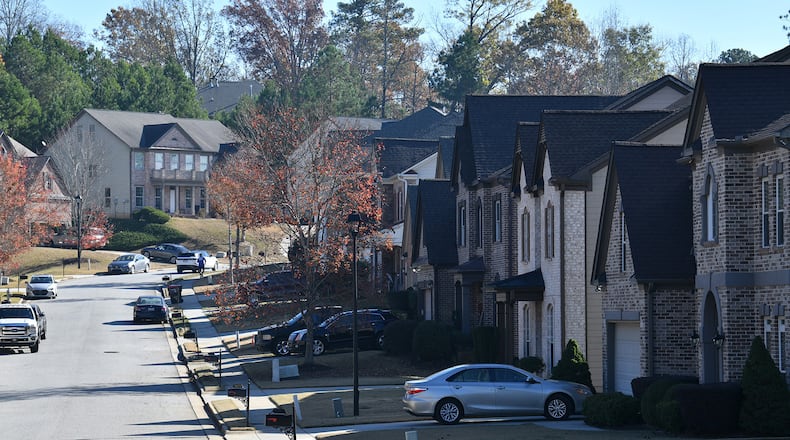An Atlanta Regional Commission analysis suggests just seven corporations own more than 51,000 single-family rental homes in the Atlanta region, with Gwinnett having the most and Henry County the highest concentration of units.
Published in November, the commission said it relied on information from a residential real estate data startup called Parcl Labs, which offers housing data and analytics. Using the start-up’s data, the commission was able to narrow down ownership to seven corporate landlords in the 21-county Atlanta region.
They are Invitation Homes, AMH Homes, Tricon Residential, Home Partners of America, Progress Residential, FirstKey Homes, and Amherst. Between them, they own 51,252 single-family homes, accounting for nearly all of their Georgia stock, or 97%.
The commission said the analysis allowed it to take a microscopic look at “address-level” data to determine ownership of the homes.
“According to their respective websites, each of these corporations’ primary business model is leasing single-family homes, some of which may later be sold to the tenant,” the commission’s data scientist Will Wright wrote in a Nov. 13 post.
The study builds upon The Atlanta Journal-Constitution’s 2023 American Dream For Rent investigation, which made similar findings and concluded that corporate ownership was pushing the dream of homeownership out of reach for many in metro Atlanta.
Credit: Courtesy of ARC
Credit: Courtesy of ARC
Measuring the rentals as a percentage of all single-family units in a county, the analysis found the highest concentration of corporate-owned single-family homes in Henry County and the lowest concentrations in Hall, Dawson, and Spalding counties.
Gwinnett, among the fastest growing and most ethnically diverse counties in the country, topped the list with the most investor-owned family rentals, with 9,680 homes in the region. Among the five core metro counties, Cobb was second with 5,284 homes, followed by Fulton with 4,150, DeKalb with 3,859, and Clayton with 3,444.
Credit: Courtesy of ARC
Credit: Courtesy of ARC
Commission researcher Mike Carnathan said the findings are the first step in a longer-term project that will examine how corporate ownership alters the character of metro Atlanta neighborhoods, and particularly Black communities where people could be priced out when investors move in. The AJC investigation found Black communities were most affected by corporate homeownership.
He said rental homes owned by corporate landlords are a “relatively small percentage of total housing stock,” but added that investor ownership still has an impact on housing availability.
“Every house you take off the market through corporate investments is one less house that somebody could buy to become a homeowner and then begin that journey to generational wealth,” he told the AJC.
Credit: Courtesy of ARC
Credit: Courtesy of ARC
Advocates and experts have long been concerned about the role of institutional investment in the housing market, which they say has contributed to the scarcity of affordable homes. But the industry group the National Rental Home Council has rebutted that assertion, arguing that providers of single-family homes give people more housing options, especially at a time when they may be struggling to afford a home.
The commission said it was following up on several recent articles about investor ownership, including the U.S. Government Accountability Office findings that Atlanta has the largest share of investor-owned family rental properties.
Earlier this year, researchers found that Invitation Homes, Pretium Partners, and Amherst own 11% of single-family rental homes in five metro Atlanta counties.
In addition, a report by the real estate brokerage firm Redfin said that investor purchases of homes in metro Atlanta exceeded $1 billion in the first quarter of 2024.
Carnathan echoed the findings in the AJC’s investigative series, explaining how corporate landlords were a product of the Great Recession, when institutional investors began buying up distressed properties in bulk.
“The idea back then was, ‘Let them stabilize the housing market, they’ll start divesting themselves of this stock and reintroduce it back into homeownership,’” he said. “Well, that didn’t happen.”
About the Author








